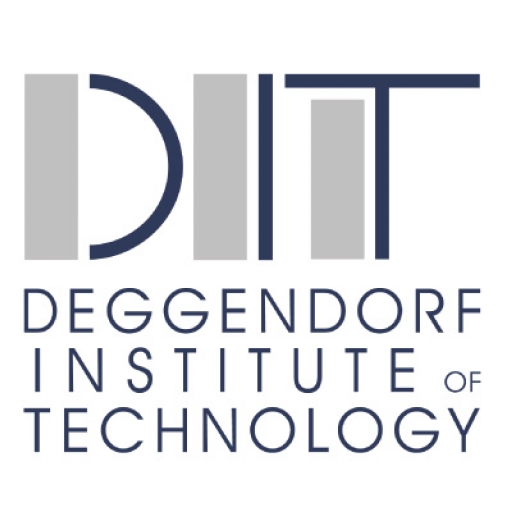Photos of university
The Master of Science in Molecular Medicine at Ulm University offers a comprehensive and interdisciplinary education designed to prepare students for a career in biomedical research and healthcare. This program combines fundamental and applied sciences to provide a deep understanding of the molecular mechanisms underlying human health and disease. Students will explore various fields such as molecular biology, genetics, biochemistry, cell biology, and medical sciences, integrating these disciplines to facilitate innovative approaches to disease diagnosis, treatment, and prevention. The curriculum emphasizes both theoretical knowledge and practical skills, including laboratory techniques, data analysis, and research methodologies, enabling graduates to conduct independent scientific investigations. The program is tailored for students with a strong interest in biomedical research and aims to foster critical thinking, problem-solving abilities, and scientific communication skills. Throughout the course, students will have access to state-of-the-art laboratories and research facilities, giving them hands-on experience in cutting-edge techniques such as molecular cloning, gene editing, and bioinformatics. The program also encourages close collaboration with faculty and research institutes, providing opportunities for internships, projects, and participation in ongoing scientific studies. Graduates of the MSc in Molecular Medicine will be well-equipped to pursue careers in academia, industry, or healthcare, including roles in research institutions, pharmaceutical companies, biotech firms, or further doctoral studies. The program’s international orientation and emphasis on translational research aim to prepare students for the global challenges in medicine and biology, making them competitive in the international job market. Overall, the MSc in Molecular Medicine at Ulm University offers a rigorous, research-oriented education that combines scientific excellence with practical training, preparing students to contribute to advancements in medicine and improve patient outcomes through innovative biomedical research.
Educational organisation
The interdisciplinary Master's programme in "Molecular Medicine" comprises two years of studies (four semesters). All lectures, seminars and practical training courses are taught in English. All examinations are also held in English.In the first semester, students deepen their knowledge in subjects like cell and developmental biology, bioinformatics and systems biology, pharmacology, natural substances and drug development and pass through a four-week long practical training in laboratory methods. In the second and third semesters, students focus on practical work in different research fields. Here students find four different main subjects, consisting of lecture, a four-week practical internship and seminar plus four additional smaller subjects, which go beyond strictly scientific contents and prepare students for workday duties of a research scientist. In the fourth semester, students concentrate on preparing the practical Master's thesis. The Master in Molecular Medicine concludes with an oral examination (disputation) at the end of the final semester.
A specialisation in the field of molecular oncology is in preparation. (Students must apply separately for this specialisation during the first semester.)
Study abroad unit(s)
A joint Master's degree with the university of Pauda/Italy is possible (with a separate application during the first semester). A second cooperation like this is in preparation.Internships
In the first semester, students pass through a four-week long practical training in laboratory methods and a two-week long practical training in imaging techniques.Four laboratory internships (each of four weeks duration) have to be successfully completed during the second and third semesters.
The fourth semester is reserved for a six-months practical Master´s thesis.
Forms of assessment
Written or oral examinationsCourse objectives
With their Master of Science degree, graduates should be able to perform scientific projects in the field of molecular medicine and to review and critically discuss published data related to this research area.Language requirements
As teaching will be in English, non-native speakers of English will have to demonstrate adequate knowledge of the English language, i.e., by acceptable results in a standardised test (e.g., TOEFL or IELTS). Alternatively, proven higher education in English is accepted, i.e., a previous study programme completely taught in English.Academic requirements
Applicants must hold a Bachelor of Science degree, a German Diploma, or an equivalent degree in one of the study courses described below, with a final mark of 2.5 or better.If the Bachelor's degree has not been granted yet, the average of examination results must be 2.7 or better (at the date of application). The equivalence of foreign grades will be checked by the Studies Office of the Medical Faculty Ulm.
Possible study courses: biomedical science, molecular biotechnology, molecular biology, molecular life science, human biology, biochemistry, etc. The equivalence of the study course is decided upon by the Master's Commission.
Enrolment fees
158.50 EURCosts of living
Approx. 700 EUR including accommodation, local transport, health insurance, and foodArrival support
International students will receive help with accommodation, enrolment, and insurance. An introduction week including all important information and guided tours is organised by the International Office of the university.The university offers orientation programmes for newcomers, which helps with formalities and gives better insights into the university structures. There is also help to find accommodation and visa support.









